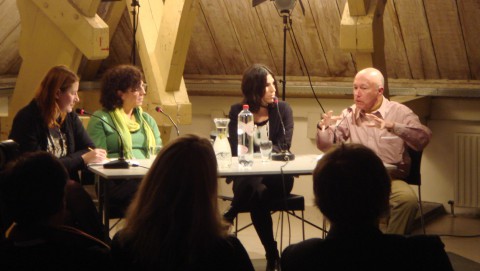In every newsletter of the exhibitions of Project ‘1975’ a guest curator or art critic will write an essay on the topic of post-colonialism in contemporary art. The first one to write is Lucrezia Cippitelli, professor of Aesthetics at the Art Academy of L’Aquila, a visiting scholar at Cornell University.
Eurocentrism and its Critique: from Third World Perspectives to Global Internationalism
“Eurocentrism is anti-universalist, since it is not interested in seeking possible general laws of human evolution. But it does present itself as universalist, for it claims that imitation of the Western model by all peoples is the only solution to the challenges of our time.”1 Samir Amin’s incisive analysis of the concept of Eurocentrism traces its origins back to the end of the 1970s. Even if it seems to perfectly depict the world of the early 21st century, this notion first circulated at a time when the global process of decolonization was nearing its conclusion and the postcolonial critique was finding a place in the Anglo-Saxon academic world.2 In his seminal essay published in 1978, the Egyptian Marxist economist uncovers the roots of a phenomenon which he describes as specifically Modern – strongly rooted in the European Renaissance – and built up in only five centuries, in order to justify the powerful and impregnable one-dimensional cultural system of the modern world. The product of this ideological process is, according to Amin, a Western history that shows a progression form ancient Greece to Rome, to feudal Christian Europe, to capitalist Europe.3 It is a cultural construction of a one-dimensional continent (white, Christian, scientifically progressive, in constant philosophical development, enlightened, capitalist, free, democratic), which furthermore over the centuries invented and defended the abstract idea of a dominant West and its counterpart, the Other, the Rest, the Different, and often the Enemy.4
More →

